Guru Madrasah Ideal di Era Kontemporer
Abstract
Globalization has direct parents to choose madrassa as an alternative education for their children. Fearing the impact of globalization, called “contemporary moral’s problems†causes the parents need to provide their children with religion, by sending them in the madrassa. It is hoped that not only being a clever and skillful figure, their children will also have good morals in accordance with Islamic values. To realize this, it is needed ideal teacher who effectively gives a significant impact on the development of students' knowledge and morale. This article presents the ideal profile of madrassa teacher needed in todays contemporary era. Various problems with the teacher’s quality of madrasah are also presented, added with their central role for students. The study hoped will provide insights for madrassa teachers to understand their important role in realizing the goal of Islamic education. Thus, they pleased to become the ideal figure of the madrassa teachers.
References
Bagian Perencanaan dan Sistem Informasi Sekretariat Jenderal Pendidikan Islam. “Statistik pendidikan Islam tahun 2012/2013â€, dalam http://pendis.kemenag.go.id/ebook/bukusaku20122013/files/download/Buku%20Saku%202012-2013.pdf, 25
Blasco, Maribel. 2004. "‘Teachers should be like second parents’: affectivity, schooling and poverty in Mexico." Compare 34.4, 371-393.
Brown, Philip. 2015. “Intertwining School Culture and Hidden Curriculum: A Positive Influence on Young Adolescents.†North Carolina Association for Middle Level Education Journal. Fall, Vol. 29, No. 1: 4-8
Daradjat, Zakiyah. 2002. Menjadi Guru Efektif. Jakarta : Bumi Aksara.
Felder, Richard M. and Rebecca Brent. 2005. "Understanding student differences." Journal of engineering education, 94.1, 57-72.
Gazibara, Senka. 2013. “Head, Heart and Hands Learningâ€, A challenge for contemporary education."The Journal of Education, Culture, and Society 1 (): 71-82.
Ghafur, Waryono Abdul. 2005. Tafsir Sosial: Mendialogkan Teks dengan Konteks. Yogyakarta : Elsaq Press.
Godin, Seth. 2009. Purple Cow, New Edition: Transform Your Business by Being Remarkable. Penguin.
Hefner, Robert W. 2007. Politik Multikultularisme, terj. Bernardus Hidayat, the politics of Multiculturalism and Citizenship in Malaysia, Singapore and Indonesia. Yogyakarta: Penerbit Kanisius.
Kamus Besar Bahasa Indonesia. http;//kbbi.web.id/ideal
Ismail, Ahmad Satori. 2012. “Kriteria Ulamaâ€, dalam http://www.republika.co.id/berita/dunia-islam/hikmah/12/10/17/mc1h8b-kriteria-ulama/ Rabu, 17-Oktober-2012/ diakses 14-April-2017.
Izzan, Ahmad dan Saehudin. 2012. Tafsir Pendidikan: Studi Ayat-Ayat berdimensi Pendidikan. Banten: PAM Press.
Makewa, Lazarus, Jackson Meremo, Elizabeth Role and Jesse Role. 2013. “ICT in Secondary School Administration in Rural Southern Kenya: An Educator’s Eye on Its Importance and Useâ€, International Journal od Education and Development Using Information and Communication Technology (IJEDICT), Vol. 9. Issue 2, pp. 48-63.
Mukhtar. 2003. Desain Pembelajaran Pendidikan Agama Islam. Jakarta : Misaka Galiza.
Qardlawi, Yusuf. 1980. Pendidikan lslam dan Madrasah Hasan al Banna, terj. Bustani A. Gani. Jakarta : Bulan Bintang.
Qardlawi, Yusuf. 1989. Ash Shabr fi al Qur’an. Kairo : Maktabah Wahbah.
Republika, “Kualitas Guru Madrasah Masih Rendah†dalam http://kliping.kemenag.go.id/download.php?file=30625, /Rabu, 21 Oktober 2015/ di akses 14-April-2017.
Rozin, P. et al. 1999. “The mapping between three moral emotions (contempt, anger, and disgust) and three moral codes (community, autonomy, divinity)â€. Journal of Personality and Social Psychology, 76(4), 574–586.
Sudjana, Nana. 1989. Penelitian dan Penilaian Pendidikan. Bandung : Sinar Baru dan Pusat Pengajaran–Pembidangan ilmu Lembaga Penelitian IKIP Bandung.
Sukanda, Ujang. 2003. Belajar Aktif dan Terpadu. Surabaya: Duta Graha Pustaka.
Sumarna, Cecep. 2014. “Alumni Madrasahâ€, dalam http://cecepsumarna.com/alumni-madrasah/ 7-September-2014/ di akses 14-April-2017
Supa'at. 2007. “Transformasi Madrasah Sebagai Sekolah Umum Bercirikhas Islam (Identifikasi Kendala Implementasi Kebijakan di Kabupaten Kudus)â€, Jurnal Pendldikan Agama lslam, Vol. IV, No. 1 (), 94
Tafsir, Ahmad. 2004. Ilmu Pendidikan dalam Perspektif Islam. Bandung: Remaja Rosda Karya.
Taufiqi. 2014. Hari menjadi Guru Idola Luar Biasa dan Kaya Raya. Malang: Dream Litera.
Usman, Moch. Uzer. 2005. Menjadi Guru Profesional. Bandung : PT. Remaja Rosda Karya.
Walker, Robert J. “12 Characteristics of an Effective Teacher†dalam http://files.eric.ed.gov/fulltext/EJ815372.pdf
Xi, Youmin and Xiaojun Zhang. 2012. “Replying to management Challenges: Integrating oriental and occidental wisdom by HeXie Management Theory.†Chinese Management Studies, Vol. 6 No. 3, pp. 395-412. Emerald Group Publishing Limited

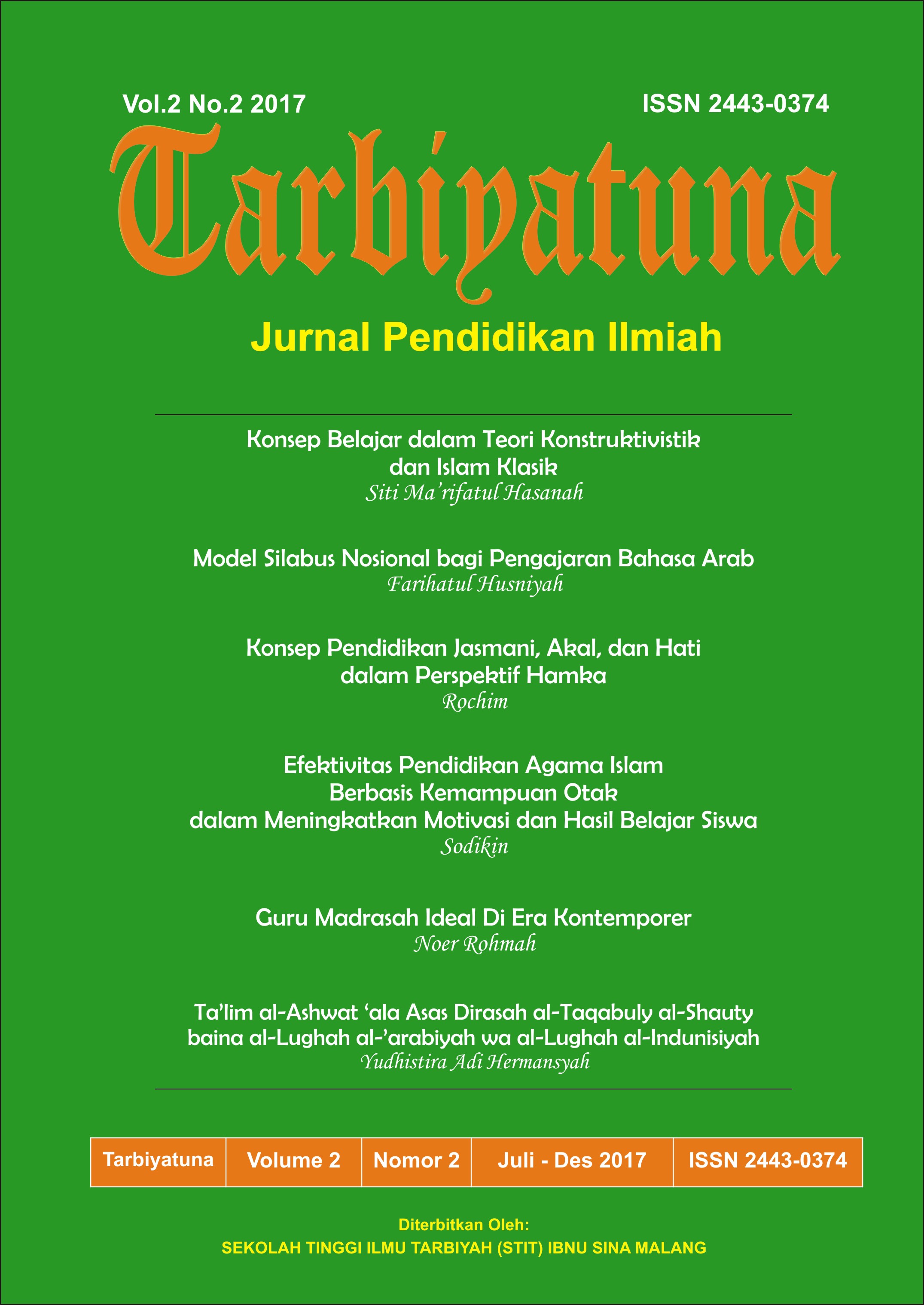

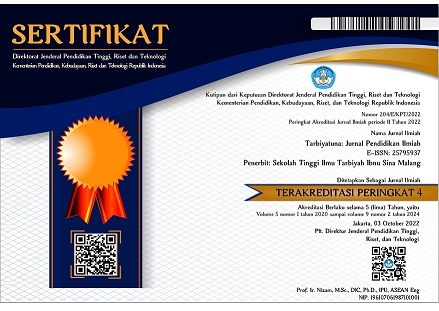
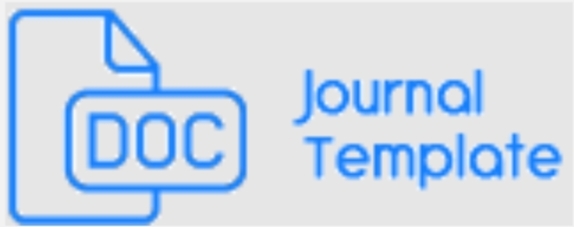

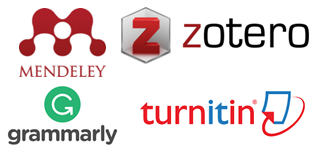
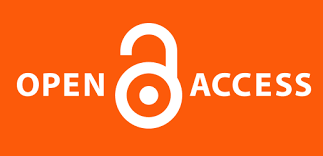
.png)

